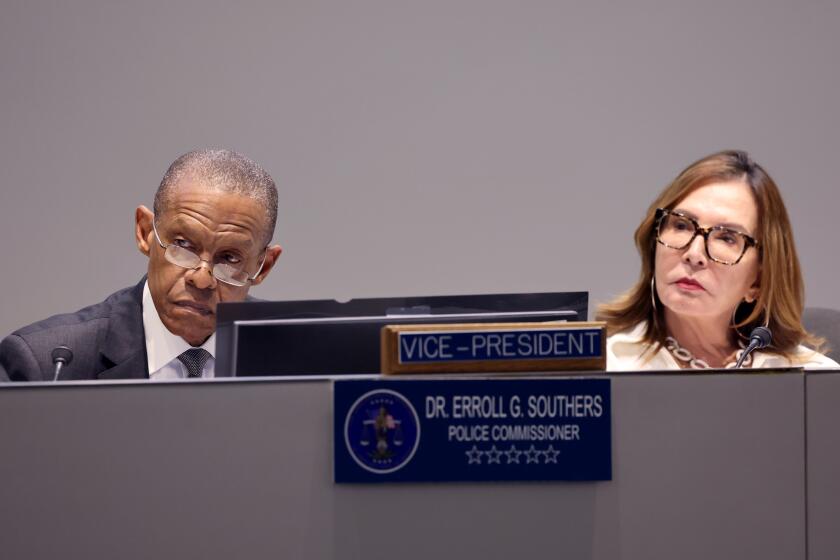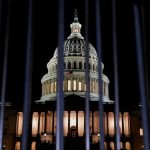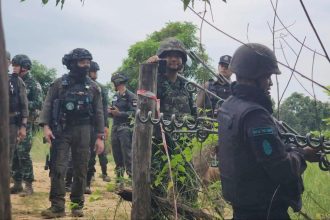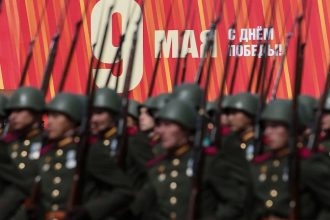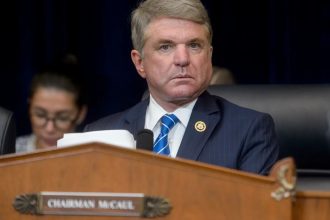A polarizing figure on the Los Angeles Police Commission will retain his seat despite having never received an approval vote from the City Council.
Erroll Southers, who previously served as president of the civilian panel that watches over the LAPD, has taken criticism for what critics say is his unwillingness to supervise police Chief Jim McDonnell, while also facing renewed scrutiny in recent months for his past counterterrorism studies in Israel.
New members of any city commission must typically be approved by a City Council vote within 45 days of their nomination. Mayor Karen Bass put forward Southers in mid-August, but his first scheduled vote was delayed because he was traveling, and the council left him off the agenda without explanation during a meeting Friday in Van Nuys.
Now that his 45-day window has elapsed, multiple officials told The Times that city rules allow Southers to continue in the position by default for a full five-year term because he was already serving on an interim basis.
Around City Hall, news of the council’s inaction set off speculation about whether it was the result of a scheduling mix-up — or because Southers’ backers didn’t believe he could get enough votes.
Failing to vote on a member of one of city’s most important and high-profile commissions is almost unheard of, said Zev Yaroslavsky, a former councilman and L.A. County supervisor now at UCLA.
“They have responsibility to confirm or not confirm,” he said of the council. “I never understood why you would campaign for office, as hard as you campaign to get there, and not vote on something that’s as important to the public.”
Appointed by the mayor, police commissioners act much like a corporate board of directors, setting the LAPD policies, approving its budget and providing oversight, including reviews of officer shootings and other serious uses of force.
Read more: LAPD touts 2024 dip in police shootings, but officers already firing more this year
Southers, 68, has been an interim member of the panel since 2023, when Bass picked him to serve out the term of a departing commissioner.
A former FBI agent and Santa Monica cop turned top security official at USC, Southers helped lead the nationwide search for the next LAPD chief. The position eventually went to McDonnell — who like Southers served as director of the school’s Safe Communities Institute.
His backers say that Southers has been committed to his role, participating in numerous listening sessions with Angelenos to learn what qualities they wanted in a police chief. He has also become a regular presence at LAPD recruitment events and graduations.
Zach Seidl, a mayoral spokesperson, praised Southers for his stewardship of the commission, saying the career lawman “brings deep knowledge of the police department’s operations, a commitment to the continued development of policies that further transparency and accountability, and trusted relationships with community members and law enforcement.”
Teresa Sánchez-Gordon, a retired L.A. County judge, replaced Southers as commission president last month, after he served more than a year in the role.
Read more: She was almost deported as a child. Now she holds a key post overseeing the LAPD
But more than any other commissioner, Southers has accumulated a loud chorus of detractors who oppose keeping him in the key oversight role.
Although it has long been part of his resume, Southers’ work in the mid-2000s in Israel has especially become a lighting rod due to the ongoing crisis in Gaza.
Last month, a United Nations commission accused Israel of committing genocide against Palestinians in Gaza in retaliation for the Hamas militant attacks that left 1,200 dead and 251 others kidnapped on Oct. 7, 2023.
Israel’s military campaign has so far killed more than 66,000 people, the vast majority of them civilians, according to Gaza health officials and international aid groups.
Although Southers has said little publicly about the conflict, he has previously described traveling to Israel and studying with the Israel Defense Forces to learn about anti-terrorism strategies for his academic work.
His opponents have argued his writings suggest that authorities should use an individual’s public support for controversial causes as a potential warning sign of extremism. Such arguments, they say, can be used to justify the criminalization of minority groups or silence dissent.
Southers weathered calls for his resignation from the commission last year after he was among the USC officials responsible for clearing encampments occupied by pro-Palestinian protesters on the school’s campus.
Others have focused on his oversight of McDonnell. Far too often, critics say, he has let the chief off the hook after recent controversies. Most recently Southers and his fellow commissioners have faced calls to put more checks on aggressive behavior by LAPD officers toward journalists and nonviolent protesters.
Shootings by police have also been a point of contention with Southers. LAPD officers opened fire 31 times in the first nine months of this year, already surpassing the total number of shootings in 2024.
The commission has ordered the department to present a report on the shootings, but that was not nearly enough to satisfy Greg “Baba” Akili, a longtime civil rights advocate with Black Lives Matter-Los Angeles who has frequently spoken out against Southers’ nomination.
As commission president, he said, Southers seemed more willing to shut down public speakers at the board’s meetings than to question the department’s narrative of recent events.
“It’s like having a member of the police force on the commission,” Akili said of Southers. “We don’t want to see just Black faces in high places: We want people who actually … uplift the public.”
This story originally appeared in Los Angeles Times.


